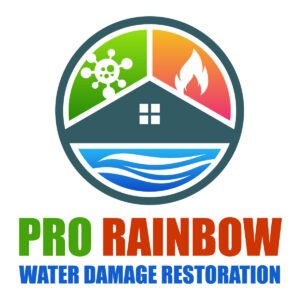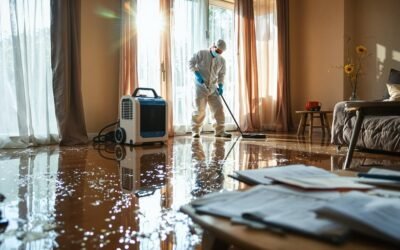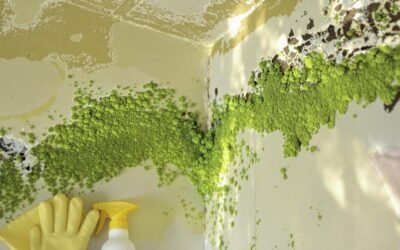Water restorations are essential after water damage. They help prevent health risks like mold growth, which can develop within 24-48 hours, and structural issues that compromise safety. Swift restoration minimizes repair costs, preserves your property's integrity, and improves air quality. While initial costs include assessment and mitigation, early intervention often saves you money in the long run. Hiring certified professionals guarantees effective restoration and thorough inspections. Overall, investing in water restoration protects your health and property value. If you want a deeper understanding of costs and potential savings, there's more to investigate.
Key Takeaways
- Timely water restoration reduces repair costs by preventing extensive damage and preserving property value.
- Quick intervention prevents mold growth, safeguarding air quality and reducing health risks.
- Professional restoration ensures structural integrity, maintaining safety and stability of the property.
- Investing in restoration leads to faster recovery and less disruption to daily life.
- Documented restorations can lower insurance premiums and enhance long-term property value.
Impact of Water Damage
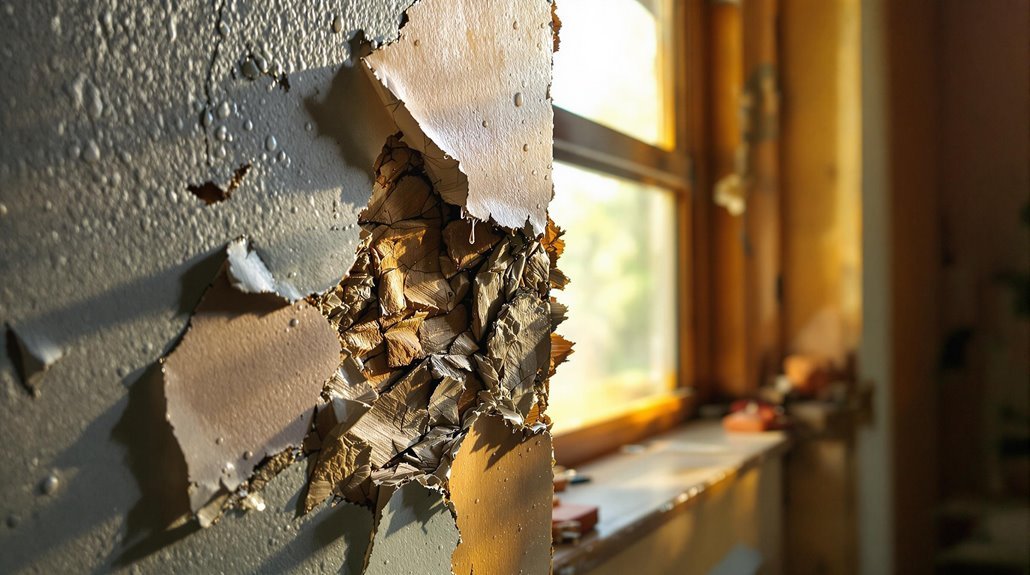
When water damage occurs, it can lead to a cascade of serious consequences that affect both property and health. You might notice structural issues, such as weakened foundations or warped floors, which can compromise your safety. Mold growth is another significant risk, as it thrives in damp conditions, potentially leading to respiratory problems and allergic reactions. Furthermore, water damage can damage electrical systems, increasing the risk of fires or electrocution. Restoration techniques are essential in mitigating these impacts, involving thorough water extraction, drying, and dehumidification processes. By understanding the full scope of water damage, you can appreciate the importance of prompt and effective restoration to protect your property and well-being. Additionally, emergency water removal services play a crucial role in minimizing damage and preventing further complications. Don't underestimate the potential long-term effects of neglecting water damage.
Benefits of Timely Restoration
Prompt restoration after water damage greatly reduces the risk of permanent issues that can arise from delayed action. A timely response not only safeguards your property but additionally improves recovery efficiency. Here's a breakdown of key benefits:
| Benefit | Description | Impact on Property Protection |
|---|---|---|
| Reduced Repair Costs | Early intervention minimizes extensive damage | Saves you money in the long run |
| Prevent Mold Growth | Quick drying prevents mold proliferation | Protects indoor air quality |
| Preserved Structural Integrity | Addresses damage before it worsens | Guarantees long-term stability |
| Faster Recovery Time | Swift action leads to quicker restoration | Reduces disruption to your life |
Incorporating these benefits guarantees your property remains safe and sound, ultimately leading to peace of mind. Timely restoration is vital for effective property protection. Additionally, quick response is essential for minimizing damage and preventing mold growth, which can lead to more severe issues down the line.
Health Risks of Water Damage
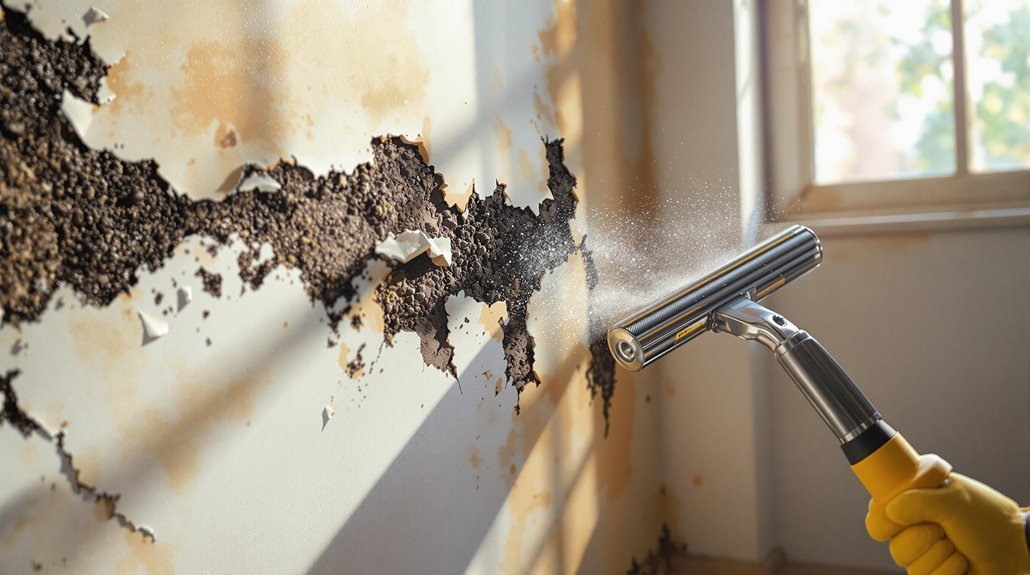
When water damage occurs, it creates an ideal environment for mold growth, which can pose serious health risks. Furthermore, the structural integrity of your property may be compromised, leading to further safety issues. You should likewise consider the impact on indoor air quality, as contaminated air can aggravate allergies and respiratory conditions.
Mold Growth Potential
While water damage can often seem like a minor inconvenience, it creates an ideal environment for mold growth, which poses significant health risks. Mold can develop within 24 to 48 hours in damp conditions, leading to respiratory issues, allergies, and other health problems. To mitigate these risks, you should implement effective mold prevention strategies, such as maintaining low humidity levels and ensuring proper ventilation in your home. If mold does appear, it's essential to employ mold remediation techniques, which typically involve containment, air filtration, and thorough cleaning to eliminate mold spores. Timely action can help protect your health and maintain a safe living environment, emphasizing the importance of addressing water damage swiftly and effectively.
Structural Integrity Threats
Although many homeowners underestimate the impact of water damage, it can severely compromise a building's structural integrity, leading to costly repairs and safety hazards. When water infiltrates your home, it can weaken vital components like beams, joists, and walls. This deterioration threatens foundation stability, which is fundamental for the overall safety of your property. If left unaddressed, you might face extensive structural repairs that could have been avoided with timely intervention. The longer water damage persists, the greater the risk of compromising load-bearing structures, which may result in partial or complete failure. Prioritizing water restoration is imperative to maintain your home's integrity and safeguard your investment against these serious threats.
Air Quality Concerns
Water damage doesn't just threaten the structural integrity of your home; it likewise poses significant risks to indoor air quality. When moisture infiltrates your space, it creates an environment favorable to mold growth and other harmful pathogens, which can lead to respiratory issues and allergic reactions. Increased indoor humidity levels worsen these problems, allowing contaminants to thrive. Implementing effective air purification methods, such as HEPA filters and UV light systems, can help mitigate these risks by capturing airborne particles and neutralizing harmful microorganisms. Nevertheless, it's essential to address the source of water damage promptly to prevent ongoing air quality issues. By prioritizing restoration efforts, you can safeguard your health and maintain a safe, comfortable living environment.
Cost Breakdown of Services
When considering water restoration services, understanding the cost breakdown is crucial for effective budgeting and decision-making. You'll want to look closely at the cost estimates and service comparisons to grasp the overall financial commitment.
- Initial Assessment Costs: This includes inspections and moisture evaluations.
- Mitigation Services: Costs associated with water extraction, drying equipment, and labor.
- Restoration and Repair: Expenses for rebuilding, replacing materials, and additional treatments.
Factors Influencing Costs
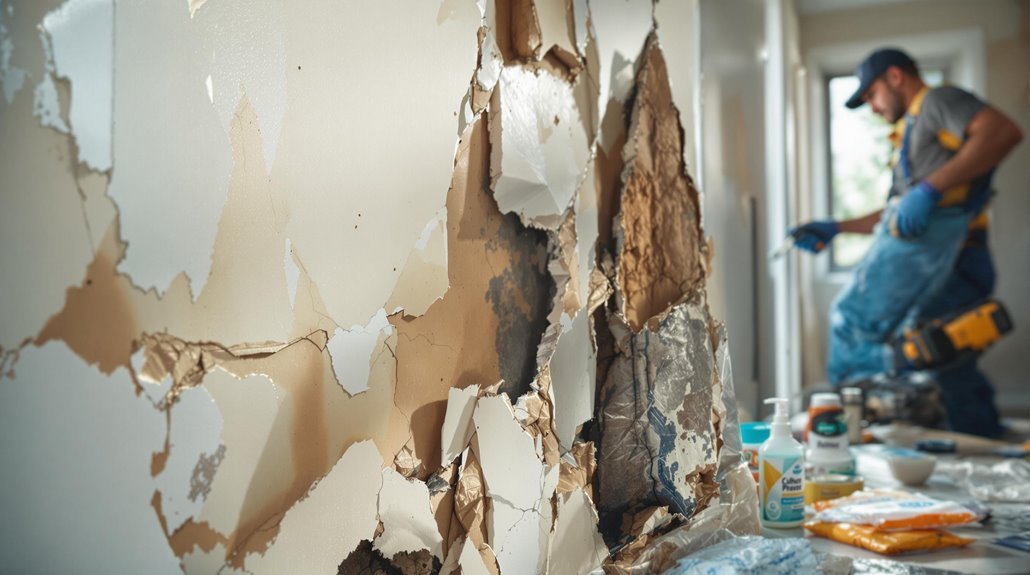
Several factors can greatly influence the overall costs of water restoration services. Your insurance coverage can play a pivotal role, as some policies might cover specific restoration technology expenses. Furthermore, the extent of damage, type of affected materials, and location all contribute to the final bill.
Here's a breakdown of key factors:
| Factor | Impact on Costs |
|---|---|
| Extent of Water Damage | Higher costs for extensive damage |
| Type of Affected Materials | Varies by material type |
| Restoration Technology | Advanced tech may increase costs |
| Labor Costs | Region and expertise influence pricing |
| Insurance Coverage | Determines out-of-pocket expenses |
Understanding these elements can help you better prepare for the financial implications of water restoration.
Potential Long-Term Savings
Investing in water restorations can lead to significant long-term savings. By addressing issues early, you'll reduce repair costs and improve your property's value over time. Furthermore, implementing preventative maintenance strategies can save you money by avoiding costly future damages.
Reduced Repair Costs
Although water damage can initially seem like a manageable issue, neglecting restoration can lead to considerably higher repair costs over time. By addressing water damage promptly with effective repair techniques, you can minimize long-term expenses and potentially leverage your insurance coverage to offset initial costs.
Reflect on the following benefits of timely water restoration:
- Preventing Mold Growth: Quick action reduces the risk of mold, which can require extensive remediation.
- Structural Integrity: Addressing water damage early prevents more severe structural issues, saving you from costly repairs later.
- Reducing Replacement Costs: Restoring affected areas often costs less than replacing materials and fixtures.
Investing in water restoration not only safeguards your property but likewise leads to significant savings in the long run.
Increased Property Value
When you promptly address water damage, not only do you protect your home from immediate issues, but you also improve its long-term value. Effective water restoration can lead to a higher property appraisal, reflecting well on potential buyers. This proactive approach boosts your home's resale value, making it an attractive investment.
| Factor | Impact on Property Value | Long-Term Benefits |
|---|---|---|
| Water Damage Repair | Increases property appraisal | Reduces risk of future damage |
| Mold Remediation | Boosts resale value | Guarantees healthier living space |
| Structural Integrity | Improves buyer confidence | Lowers insurance premiums |
Preventative Maintenance Savings
Addressing water damage not merely improves your property value but similarly sets the stage for significant savings through preventative maintenance. By investing in restoration, you can implement effective preventative measures that reduce future risks, ultimately lowering your overall costs.
Consider these potential savings benefits:
- Reduced Repair Costs: Regular maintenance schedules can identify issues early, preventing costly repairs down the line.
- Lower Insurance Premiums: Properties with documented preventative measures often qualify for reduced insurance rates, saving you money annually.
- Extended Lifespan of Assets: Proper upkeep of your property's infrastructure prolongs the life of crucial systems, minimizing replacement expenses.
Ultimately, these preventative strategies not only safeguard your investment but likewise lead to substantial long-term financial benefits.
Choosing the Right Professionals

How can you guarantee that your water restoration project is handled effectively? Start by selecting a team of certified technicians. These professionals possess the necessary training and expertise to manage complex restoration processes safely. Look for service reviews online to gauge their reputation; past client experiences can provide valuable insights into their reliability and quality of work. Prioritize companies that offer clear estimates and detailed plans, ensuring transparency throughout the restoration. Furthermore, confirm that they utilize advanced equipment and techniques for ideal results. By choosing the right professionals, you minimize risks and improve the efficiency of your restoration project, ultimately safeguarding your property against future water damage. Your diligence in this selection process pays off in the long run.
Making an Informed Decision
While managing the complexities of water restoration, it's crucial to weigh your options carefully to guarantee the best outcomes. Making informed choices can greatly impact both the effectiveness of the restoration process and your financial investment. Consider the following factors:
- Scope of Damage: Assess the extent of water damage to determine necessary restoration methods.
- Cost vs. Value: Evaluate the costs of restoration services against the long-term benefits of preserving your property's integrity.
- Professional Expertise: Research and select experienced professionals who can deliver quality results efficiently.
Conclusion
To summarize, investing in water restoration services isn't just about fixing immediate damage; it's additionally about protecting your health and home long-term. While some may question the costs, consider the potential risks of untreated water damage, like mold growth and structural issues. By choosing skilled professionals, you can mitigate these dangers effectively. Ultimately, the theory that timely restoration saves money and stress in the long run holds true, making it a wise decision for any homeowner.
